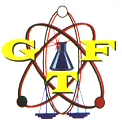Bertol E, Di Milia MG, Fioravanti A, Mari F, Palumbo D, Pascali JP, Vaiano F
Forensic Sci Int. 2018 Oct;291:207-215
Abstract
In case of drug-facilitated sexual assault (DFSA), the evidence is frequently anecdotal, with few investigations based on scientific evidences being carried out and thus most cases are diagnosed as an acute drug or alcohol intoxication.
The reason may lay in the lack of specific knowledge by the victim on the possibility to retrospectively study the allegedly events and to the absence of standardized and shared protocols among health, forensic and police subjects.
On this basis, in 2015 the Unit of Forensic Toxicology of University of Florence and the Sexual Assaults Centre in Hospital Careggi have fixed a common protocol to be applied in case of DFSA.
The purpose of the study was to describe the results of the application of the shared protocol for toxicological findings among women seeking health care after sexual assault, and to assess the relationship with so-called proactive DFSA drugs.
We conducted a study on female patients above 18 years of age consulting the Sexual Assault Centre between 2010 and July 2018. Among the 256 patients included, 37.1% was positive at least for a substance. Alcohol was the most detected substance (57 cases), followed by Cannabis (19 cases), cocaine (15 cases) and opiates/methadone (heroine: 5; morphine:1; methadone: 6); benzodiazepines and amphetamine were found in 13 and in 2 cases, respectively.
Only case of gamma-hydroxybutyrate (GHB) consumption was observed while new psychoactive substances were not detected. Among the patients suspecting proactive DFSA, sedative drug findings, not explained by voluntary intake, were encountered.

